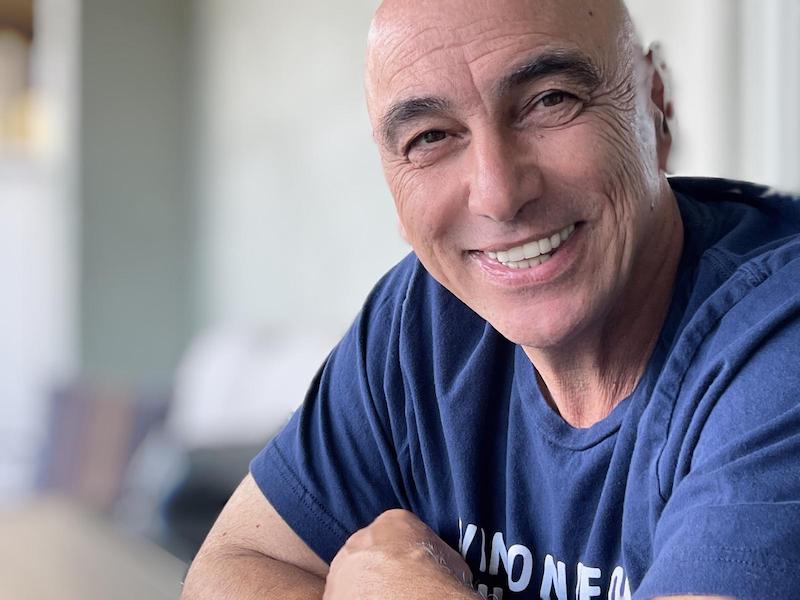
August 2024
Tony Kashani, Ph.D., is an Iranian-American author, educator, philosopher of technology, and astute cultural critic. He is the author of six books on new media, cinema, and AI including most recently "Meditations on Resistance: An Inquiry into AI, Critical Media Literacy, and Social Justice." His newest book on critical AI literacy will be released in 2025. Dr. Kashani serves as a faculty member within the Doctoral Program in Education at Antioch University.
You have a huge range of interests — literature, cinema, the sciences. Was it hard to settle into one place, academically?
I’m someone who came to the U.S. as a teenager and had to make this country my homeland. So, I’ve always been in situations where I had to come into things sideways. Always adapting, always thinking a little differently, trying to figure things out. As a little kid, I was very curious. My dad used to get these scientific magazines every week. After he finished reading them, I would pick them up and pretend to understand. He was very STEM focused. My mother taught Persian literature so we always had poetry around. It was an interdisciplinary upbringing.
I went to college thinking I was going to be an engineer, but changed my mind. I ended up going into broadcasting, then worked in the corporate world, which was disappointing. Not my thing. So I went back to grad school to study the Humanities.
I started writing, and then exploring cinema. Cinema, good cinema, is, in my view, the most interdisciplinary of art forms. It brings in elements of theater, of design, of music. It’s a reflection of the human condition and the questions that are embedded in our condition. I really gravitated toward that and the philosophical underpinnings. And I love reading science fiction.
Basically, all of my interests converged, culminating in this arena of exploring the human condition in this age of generative AI.
What fascinates you most about AI?
The term “artificial intelligence” is, I think, brilliant. A lot of people question whether it’s actually “intelligence.” I think when a system has to go through the process of computing and then delivering an answer, it's a form of intelligence. Of course, it's artificial. It's not like humanistic intelligence, but it's fascinating to see how it has evolved. Now we’re even looking at machines teaching other machines. All of that absolutely fascinates me.
I believe that we are embarking on a new path in terms of our humanity and consciousness, but where are we going I don't know. But how fun and, at the very least, adventurous it is to walk this path and discover where it takes us. It’s just like life where the universe has its own plans for our lives. We’ll see.
Are there other significant points in history where human consciousness has shifted or developed in important ways, or is AI altogether different?
That’s something I ponder literally every day. People do make analogies that this is like the Industrial Revolution, or the advent of printing, or when radio or television were invented. Yes, all of those transformed humanity significantly. However, I believe AI is unique in that it merges our singularity, blending us into beings that are part AI and part organic human. In other words, AI is an extension of human consciousness.
Although many tech capitalists promote their products as fulfilling human desires for community and connection, they are actually exploiting us. I don't believe these individuals fully grasp the implications of their creations. Earlier inventions enhanced human autonomy, but this is not the case with all AI technologies. Many people are apprehensive about AI, which is why there are frequent calls for a "pause" button. Therefore, it is crucial to continue this inquiry with a critical perspective.
Where do you think human consciousness will be in 50 years?
I wish I was an oracle so I could tell you. I don’t know. Consciousness is the biggest puzzle in science, in philosophy, in history, in psychology. We don't have a theory of consciousness like Einstein gave us E = mc^2, the general theory of relativity, and that's kind of satisfying. Even though we know quantum theories are out there, physics, in particular, has given up dealing with consciousness, and have sort of said, “OK, philosophers, you deal with it.”
You obviously love to wrestle with these big unknowns. What do you find the most exciting?
I have a passion for learning new things, but what truly excites me is the thrill of uncovering the unknown and the opportunity to explore potential futures.